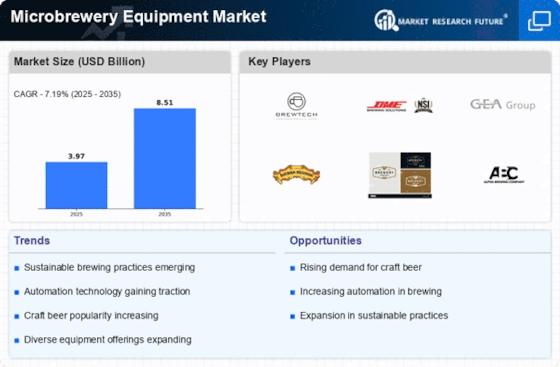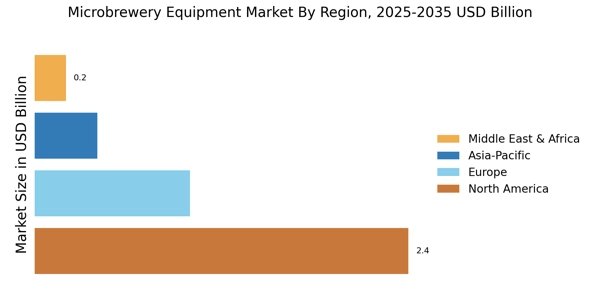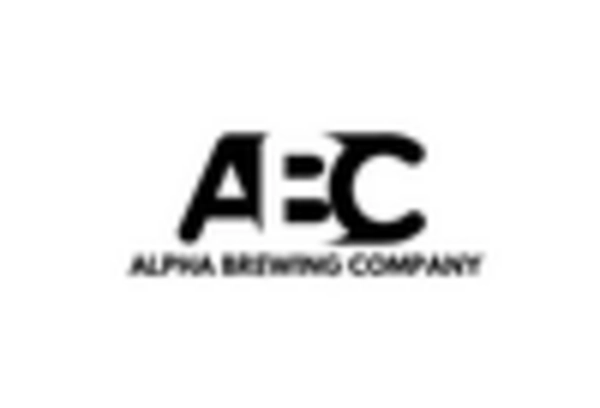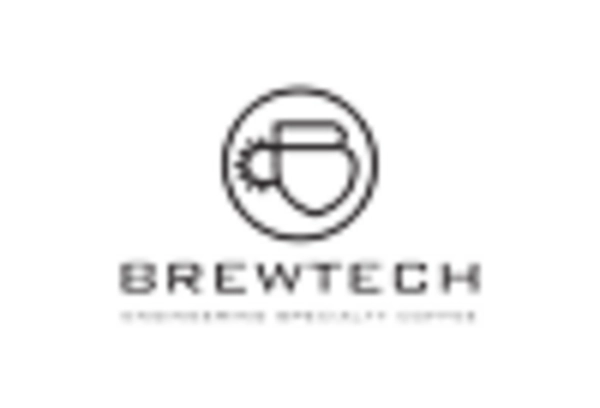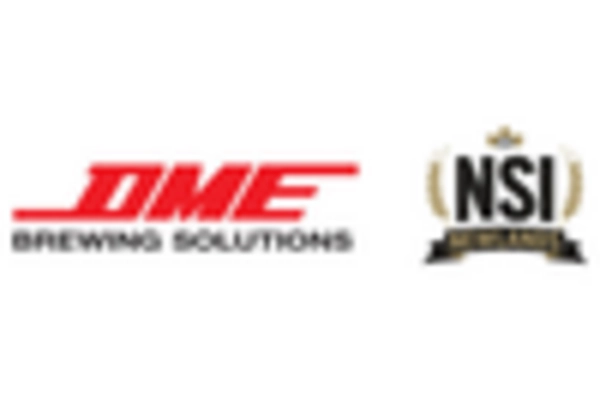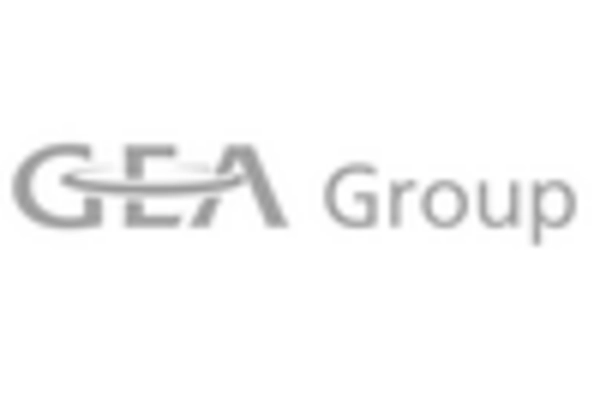Rising Demand for Craft Beverages
The increasing consumer preference for craft beverages is a pivotal driver in the Microbrewery Equipment Market. As more individuals seek unique and artisanal flavors, the demand for microbreweries has surged. According to recent data, the craft beer segment has experienced a compound annual growth rate of approximately 8% over the past few years. This trend indicates a robust market for microbreweries, necessitating advanced equipment to meet production needs. Consequently, manufacturers of microbrewery equipment are likely to innovate and expand their offerings to cater to this growing demand, thereby enhancing their market presence. The Microbrewery Equipment Market is thus positioned to benefit from this trend, as new entrants and established players alike invest in state-of-the-art brewing technology to capture the attention of discerning consumers.
Technological Advancements in Brewing
Technological innovations play a crucial role in shaping the Microbrewery Equipment Market. The advent of automation and smart brewing technologies has revolutionized the brewing process, allowing for greater efficiency and consistency. Equipment that incorporates IoT capabilities enables brewers to monitor and control brewing parameters remotely, which can lead to improved product quality. Recent statistics suggest that the adoption of automated brewing systems has increased by over 15% in the last year alone. This trend indicates a shift towards more sophisticated brewing operations, which could potentially enhance production capacity and reduce operational costs. As a result, the Microbrewery Equipment Market is likely to see a surge in demand for technologically advanced equipment that meets the evolving needs of modern brewers.
Consumer Trends Favoring Local Products
Consumer preferences are increasingly shifting towards locally produced goods, which serves as a significant driver in the Microbrewery Equipment Market. This trend is particularly evident in the beverage sector, where consumers are more inclined to support local breweries that offer unique flavors and community engagement. Recent surveys indicate that nearly 70% of consumers prefer purchasing products from local businesses, which has led to a proliferation of microbreweries. As a result, the demand for microbrewery equipment is likely to rise, as new and existing breweries seek to enhance their production capabilities to meet local demand. The Microbrewery Equipment Market is thus positioned to capitalize on this trend, as brewers invest in equipment that allows them to produce high-quality, locally sourced beverages.
Sustainability and Eco-Friendly Practices
Sustainability has emerged as a significant driver in the Microbrewery Equipment Market. With growing awareness of environmental issues, many microbreweries are adopting eco-friendly practices, including energy-efficient brewing equipment and waste reduction strategies. Data indicates that breweries implementing sustainable practices can reduce their operational costs by up to 20%. This shift not only appeals to environmentally conscious consumers but also aligns with regulatory trends favoring sustainable business operations. As a result, manufacturers of microbrewery equipment are increasingly focusing on developing products that support these sustainability initiatives. The Microbrewery Equipment Market is thus likely to experience growth as brewers seek equipment that minimizes their environmental footprint while maintaining high-quality production standards.
Expansion of Craft Beer Distribution Channels
The expansion of distribution channels for craft beer is a notable driver in the Microbrewery Equipment Market. As craft breweries seek to reach wider audiences, they are exploring various distribution avenues, including online sales and partnerships with local retailers. This trend has been bolstered by the increasing popularity of craft beer, which has led to a rise in the number of microbreweries. Recent figures suggest that the number of craft breweries has doubled in the last decade, indicating a robust market landscape. Consequently, the demand for microbrewery equipment is likely to increase as these establishments invest in scalable production capabilities to meet the growing consumer base. The Microbrewery Equipment Market stands to benefit from this expansion, as brewers require advanced equipment to support their distribution efforts.


